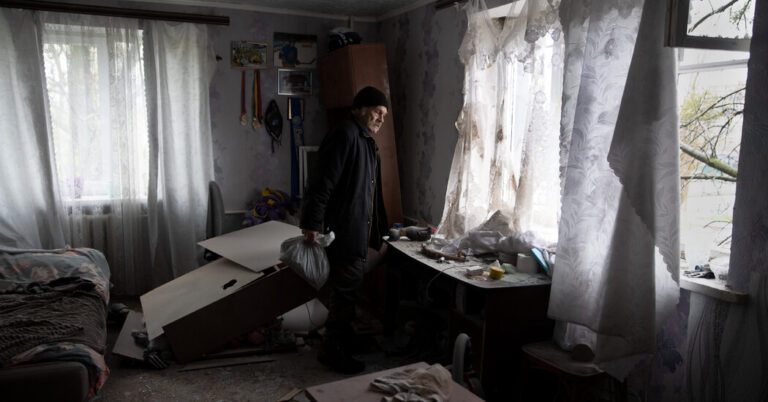Opinion | How France’s Far Right Became the Adults in the Room
Ms. Le Pen and her party, remarkably, have become, in the eyes of many, the voice of la France profonde, the voice of reason. She has condemned the violence on the streets (though never the police’s), as well as Mr. Macron for “losing the meaning of democracy,” adding, “When the ruler wants something and the people don’t, it should not be done.” She has promised that she will reverse the retirement age change if — when — she’s elected.
Her party’s 88 members of the National Assembly, the third-largest group in the legislative body, have succeeded in further normalizing the far right by playing the role of the adults in the room. The far right is managing to present itself as the defenders of democracy, imperiled by Macron’s diktats, and of stability, threatened by left-wing chaos.
Is this a durable position? The Yellow Vest movement did not lead to the defeat of Mr. Macron in 2022. But those elections did see Ms. Le Pen receive more votes than her party ever had.
The government’s mishandling of the pension overhaul, from failing to convince the French that it was even necessary to forcing it through when it was unable to obtain a legislative majority, has increased the people’s animus toward politics and politicians. Over the past four decades, every political alternative but the far right has been tried and found wanting — the Socialists of François Mitterrand and François Hollande, the conservatives of Nicolas Sarkozy and the center and Mr. Macron.
Though much of this held true a year ago, the change in the retirement age touched something fundamental in the French, cementing the divorce between the people and politicians. Ms. Le Pen has never held power, and so she has never failed her voters. She offers a fresh start and holds out the promise that, unlike those who have ruled France till now, she will defend the people’s interests. For now, at least, this argument is perhaps the clinching one in the minds of many in France.
Mitchell Abidor is a translator and a historian of French radical movements. Miguel Lago is the executive director of the Institute for Health Policy Studies and teaches at Harvard T.H. Chan School of Public Health
The Times is committed to publishing a diversity of letters to the editor. We’d like to hear what you think about this or any of our articles. Here are some tips. And here’s our email: [email protected].
Follow The New York Times Opinion section on Facebook, Twitter (@NYTopinion) and Instagram.
Check out our Latest News and Follow us at Facebook
Original Source







